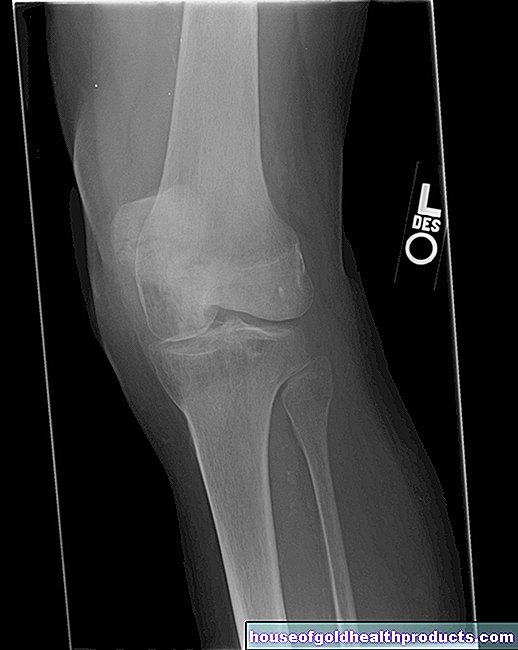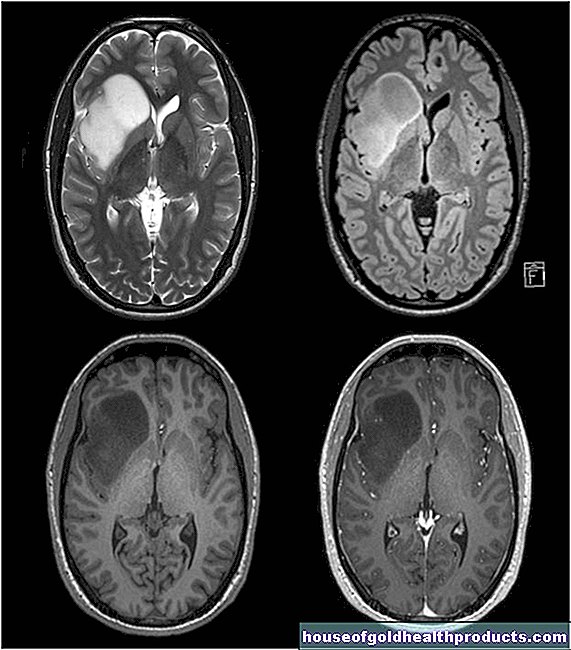Singing improves memory
Larissa Melville completed her traineeship in the editorial team of . After studying biology at Ludwig Maximilians University and the Technical University of Munich, she first got to know digital media online at Focus and then decided to learn medical journalism from scratch.
More about the experts All content is checked by medical journalists.Music is good for the mind and soul. Finnish researchers have now shown in a study with dementia patients that there is some truth to this proverb. Singing and listening to music not only lightened the patient's mood, but also improved their memory.
A total of 89 patients with mild to moderate dementia and their carers participated in the study by Teppo Särkämö and his colleagues from the University of Helsinki. The researchers divided these into three groups. The first group met regularly to sing for ten weeks. The second group did not sing themselves, but listened to well-known songs. The last group served as a control group and received no musical coaching whatsoever. Before and after the study period, the researchers tested the participants' memory function and determined their quality of life and emotional situation using questionnaires.
Better singing or listening?
The researchers found that singing in particular had a beneficial effect on dementia patients - especially those with mild dementia under the age of 80: After ten weeks of singing, they showed a better working memory and better orientation ability. In addition, they became more independent and were able to master everyday tasks better again. Just listening to music, on the other hand, had an effect on patients with more advanced dementia: their cognitive abilities and working memory improved significantly.
Both singing and listening to music were good for the mood of the test subjects. Depressive moods occurred significantly less in these two groups than in the control group. The musical events helped dementia patients regardless of whether they had played an instrument in the past or sang a lot.
Widespread disease dementia
With the increasing number of dementia patients and limited health care resources, it is important to find alternative ways to improve patients' cognitive skills and emotional and social well-being, Särkämö emphasizes. “Our results suggest that musical leisure activities could be used in the treatment of dementia patients in the future. Particularly stimulating and engaging activities like singing seem to be very beneficial for memory function in the early stages of dementia, ”he adds.
Dementia can be caused by various changes in the brain. Dementia is therefore just an umbrella term for a number of diseases, all of which lead to a persistent decline in mental performance and a change in personality. People suffering from dementia are becoming more and more forgetful, can often no longer orientate themselves well and have difficulties with everyday activities such as shopping or washing. These breakdown symptoms make many patients so worried, especially at the beginning of the disease, that they fall into depression.
Sources:
Särkämö T. et al .: Clinical and Demographic Factors Associated with the Cognitive and Emotional Efficacy of Regular Musical Activities in Dementia. Journal of Alzheimer's Disease. DOI: 10.3233 / JAD-150453
Press release of the IOS Press from December 10th, 2015
Tags: Menstruation palliative medicine foot care





























.jpg)